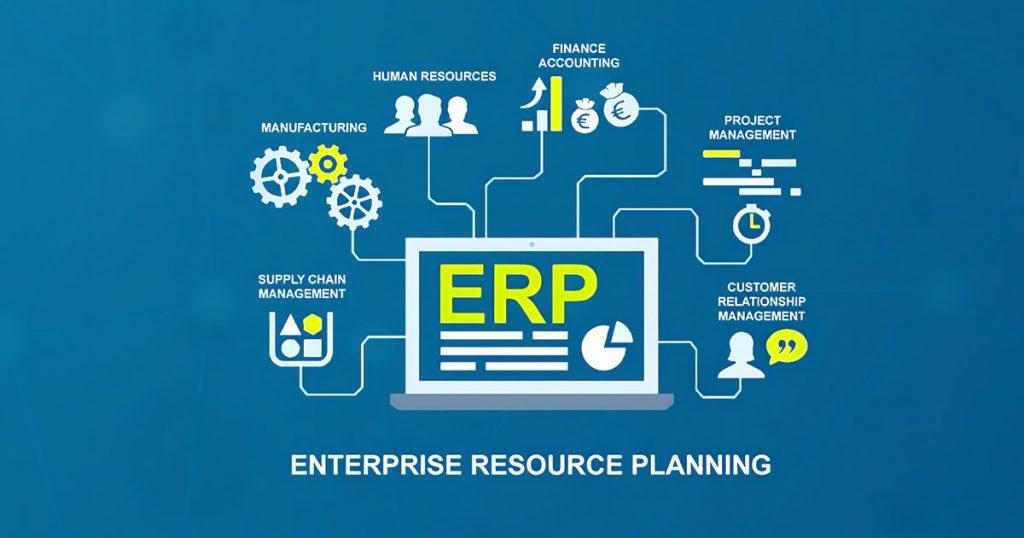When it comes to managing your business’s finances, you might wonder if QuickBooks can serve as a full-fledged ERP system. The question is, is QuickBooks an ERP? While QuickBooks is a powerful tool for many small to medium-sized businesses, it’s important to understand its limitations and how it compares to dedicated ERP systems. In this blog, we’ll explore what QuickBooks offers, how it differs from ERP systems, and whether it’s sufficient for your business needs.
What is QuickBooks?
QuickBooks is a popular accounting software designed to help businesses manage their financial activities. It provides essential tools for invoicing, expense tracking, payroll, and generating financial reports. With its user-friendly interface, QuickBooks simplifies accounting tasks and makes it easier for businesses to stay on top of their finances.
The software is available in various versions, including QuickBooks Online and QuickBooks Desktop, each catering to different business needs. While it’s widely used by small businesses for its ease of use and affordability, its scope is primarily limited to accounting functions rather than broader business management.
Is it an ERP System?
Although QuickBooks is a robust accounting tool, it’s not classified as an ERP system. Here’s why:
- Focus on Accounting: QuickBooks primarily handles accounting tasks, including managing invoices, expenses, and payroll. In contrast, ERP systems integrate multiple business functions beyond accounting, such as supply chain management and customer relationship management.
- Integration Capabilities: While QuickBooks can integrate with other applications, it doesn’t offer the same level of integration as an ERP system. ERP systems are designed to unify various business processes into a single, comprehensive platform.
- Scalability: ERP systems are built to scale with growing businesses, offering advanced features to handle complex operations. QuickBooks, on the other hand, may face limitations as a business expands, particularly if the business requires more comprehensive functionality.
- Customization: ERP systems often provide extensive customization options to fit specific business needs. QuickBooks offers some customization but is generally less flexible compared to ERP solutions.
- Cost: QuickBooks is generally more affordable than ERP systems. While it’s budget-friendly for small businesses, ERP systems can be costly but offer a broader range of functionalities suitable for larger organizations.
Main Differences Between QuickBooks and an ERP System
To better understand the distinction between QuickBooks and ERP systems, consider the following differences:
- Scope of Functionality: QuickBooks focuses on accounting and financial management, whereas ERP systems encompass a wide range of business processes, including inventory management, human resources, and customer service.
- Data Integration: ERP systems integrate data from various business functions into a single system, facilitating comprehensive analysis and reporting. QuickBooks primarily manages financial data, often requiring separate systems for other business functions.
- User Access: ERP systems provide role-based access to different modules, allowing for more controlled and secure data management. QuickBooks offers limited user access controls focused mainly on accounting.
- Reporting and Analytics: ERP systems offer advanced reporting and analytics capabilities that provide insights across multiple business areas. QuickBooks provides basic financial reports, which might not be sufficient for detailed cross-functional analysis.
- Implementation and Maintenance: Implementing an ERP system can be complex and requires significant time and resources. QuickBooks is relatively easier to set up and maintain, making it more accessible for smaller businesses.
Is QuickBooks Enough for Your Business?
Whether QuickBooks is sufficient for your business largely depends on your specific needs. For small to medium-sized businesses with straightforward accounting requirements, QuickBooks often provides everything necessary to manage finances effectively. It’s user-friendly, cost-effective, and covers essential accounting functions.
However, if your business is growing or has complex needs that extend beyond basic accounting, you might find QuickBooks lacking in certain areas. As your business evolves, you may need more advanced features that ERP systems offer, such as comprehensive integration, scalability, and customization.
Signs You’re Ready to Upgrade from QuickBooks to an ERP System
If you’re considering an upgrade, here are some signs that it might be time to move from QuickBooks to an ERP system:
- Increased Business Complexity: If your business operations have become more complex, involving multiple departments or locations, an ERP system might better manage these complexities.
- Need for Integration: If you’re struggling with integrating QuickBooks with other software applications or systems, an ERP solution could offer seamless integration across various business functions.
- Scalability Issues: If QuickBooks is no longer meeting your needs due to limitations in handling growing volumes of data or transactions, an ERP system might be necessary to support your expansion.
- Advanced Reporting Needs: If you require more sophisticated reporting and analytics that QuickBooks can’t provide, an ERP system with advanced features might be a better fit.
- Custom Business Processes: If your business has unique processes that QuickBooks cannot accommodate, an ERP system that offers customization options could be beneficial.
Evaluating QuickBooks vs. ERP for Your Business
In summary, while QuickBooks is a valuable tool for many small to medium-sized businesses, it’s not an ERP system. It provides essential accounting features but lacks the comprehensive integration and functionality of dedicated ERP solutions. Assessing your business’s complexity, growth, and needs will help determine whether QuickBooks is sufficient or if an ERP system would be a more suitable choice. Upgrading to an ERP system can offer enhanced capabilities and scalability, ensuring that your business remains efficient and competitive as it grows.
